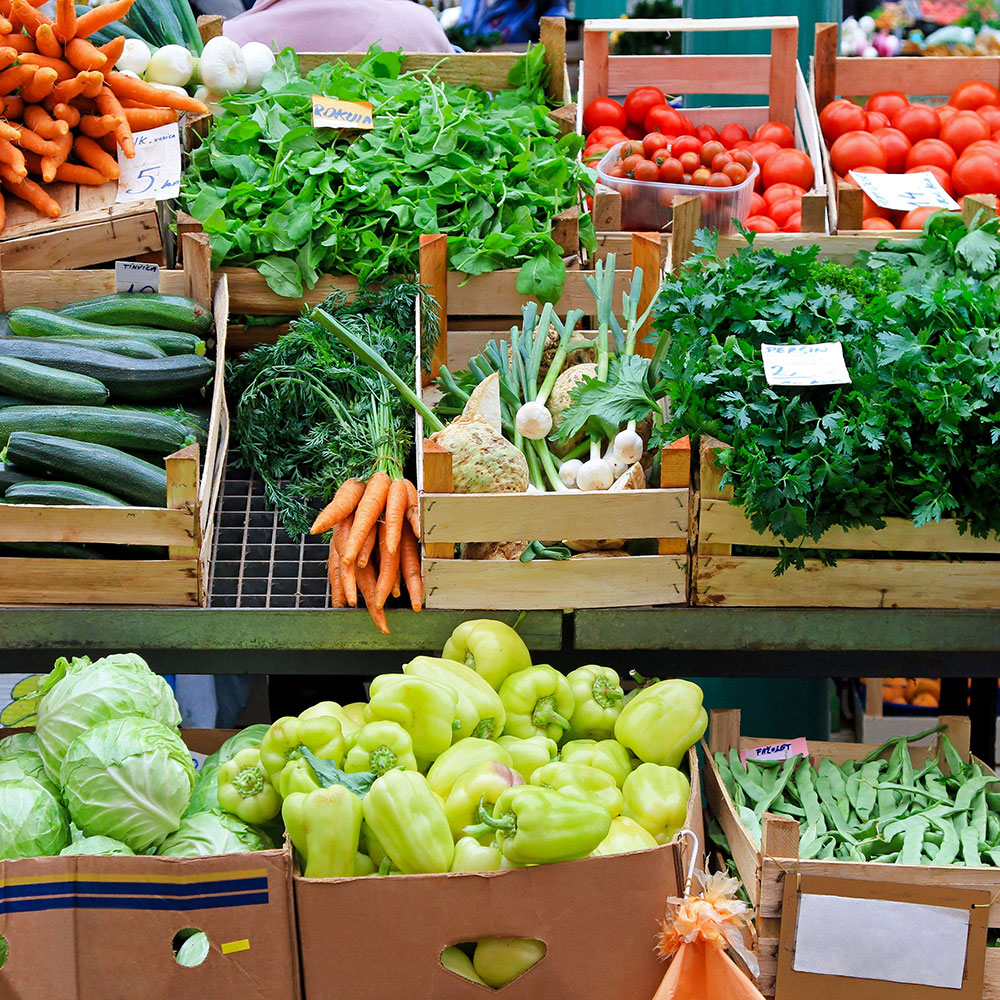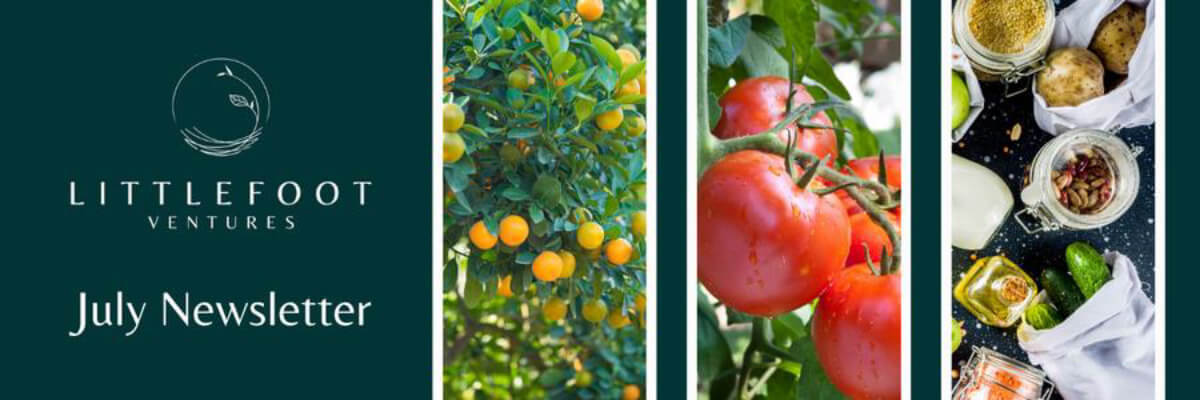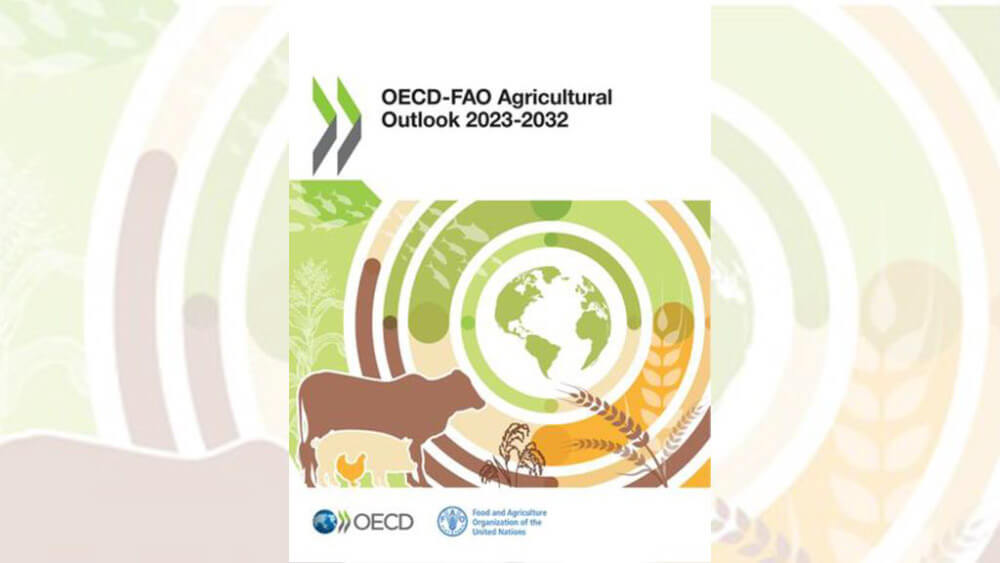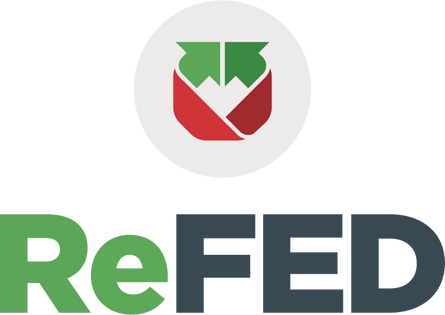Dear Colleague,
Alessia here! In case you missed my intro blog last month, I’m Littlefoot’s newest team member, and I’m thrilled to be the one filling you in on some of the exciting happenings this month.
But first, how is it already July?! For so long I’ve been saying that I’m moving to Paris in a few months and now my move is just around the corner. It’s dizzying as I have yet to find a flat (gulp). But aside from scouring the French housing market, I’ve been on the pulse of the food systems ecosystem and see promising momentum.
Important Updates
- The OECD and FAO released their collaborative Agriculture Outlook Report for 2024-2033. An important takeaway from this report was that agricultural production is expected to continue growing and result in a projected 5% increase of direct greenhouse gas emissions over the next decade. These emissions will primarily be linked to rising ruminant production, especially in low and middle-income countries. However, it was also highlighted that if we meet the 12.3 SDG target and halve global food loss and waste, then we can reduce direct emissions by 4%. The report emphasized that a drastic transformation of global agrifood systems is the only pathway for actually meeting the target. For me, this continues to validate the urgency of the work we do.
- The Food For Planet Prize was recently awarded to C40 Food Systems. This is the largest food focused environmental award in the world, totaling 2 million USD. C40 Food Systems is a global network of nearly 100 mayors of the world’s leading cities. Specifically, 16 cities have pledged to reinvent their food systems by 2030, and the award was given for their effort in making millions of meals healthier and more sustainable. Having 16 cities on board is a great start, but we hope to see this award money go towards expansion!
- The U.S. Food Waste Pact, a national voluntary agreement for food businesses to accelerate progress towards their food waste reduction targets, has welcomed two new major signatories. Amazon Fresh joined at the end of April and ISS Guckenheimer’s participation was announced just last week. With the far reach and sectoral influence both businesses have, their commitment to the pact demonstrates their willingness to be leaders and help drive more change across the food industry.
- Registration for our Climate Messaging Mastery for Food Nonprofits is now open!!! Secure your spot (here!) for the Fall cohort and save $500 with promo code EARLYBIRD. Each enrollment secures you three (3) spots for the course. Keep reading for more information 😉
The updates from the Agricultural Outlook Report (mentioned above) make it clear that our need to address climate is only growing. At this point, we know that reducing food waste and eating more plant-rich diets are the top 2 solutions to reduce global temperatures by the necessary 2°C. This means that food, agriculture, and nutrition focused organizations are the catalysts for climate-positive change.
Philanthropic donors increasingly seek to support organizations that can demonstrate active shifts toward a sustainable future, yet less than 2% of philanthropic dollars are going towards climate initiatives, and less than 0.05% of them are going to food and agriculture. The supply of capital exists, but there is a gap when it comes to connecting the supply to the organizations and initiatives that can achieve real climate impact with these funds.
To help close the gaps in the ecosystem of change-makers and capital providers, our Climate Messaging Mastery for Food Nonprofits is designed to empower food-focused nonprofit leaders, fundraising teams, marketing and communications professionals, and climate change advocates with the essential skills needed to communicate the value of your organization’s work as a climate solution in a way that resonates with climate donors.
Please share widely with colleagues who may find value in joining us, and don’t hesitate to reach out to us if you have any questions or require additional information before signing up.
We can’t wait to welcome you or your colleagues to the course!
As always, we want to hear what is going on in your world and how we can support you.
Sincerely,
What I’m Reading
Source: Food and Agriculture Organization of the United Nations
OECD-FAO Agricultural Outlook 2024-2033 – OECD and FAO
This report provides a comprehensive analysis of the projected evolution of agricultural markets for the next 10-year period. It presents several trends about production growth, progress across global, regional, and national geographies, consumption patterns, and other relevant themes, and it serves as a new guiding reference for policy planning and multistakeholder collaboration.
C40 Food Systems Wins the Food Planet Prize – Food Planet Prize
C40 Food Systems, a global network of nearly 100 mayors of the world’s leading cities, was awarded the Food Planet Prize for enhancing the sustainability and health of urban food systems. The program partners with over 50 cities to promote a “Planetary Health Diet” by 2030, tackling food loss, waste, and ensuring equitable access to nutritious food. This initiative is a significant step towards achieving global food system sustainability and improving public health across geographies.
Reducing food loss and waste: Examples of voluntary agreements and other forms of collaborations across Europe – European Commission
The European Commission published a report that provides an extensive overview of voluntary agreements (VAs) on food loss and waste reduction across Europe. Using information gathered from 13 EU Member States, the report details their diverse set of approaches, impacts and lessons learned.
How To Talk To Kids About Climate Change – Project Drawdown
Our narratives about climate matter, including the narratives we tell kids. The dialogue should be solutions oriented and meet kids where they are. The best way to do that is to listen, sympathize with their feelings, encourage their curiosity by creating learning opportunities, and help them find ways to get involved in local climate solutions. Kids are the future, and we need to help them feel empowered in their ability to be changemakers.
Small Changes in Diet Could Help You Live Healthier, More Sustainably – University of Michigan Press
A University of Michigan study found that small dietary changes can enhance health and sustainability. The study assessed more than 5,800 foods, ranking them by their nutritional disease burden to humans and their impact on the environment. The rankings showed that substituting 10% of daily caloric intake from beef and processed meats for a mix of fruits, vegetables, nuts, legumes and select seafood could reduce dietary carbon footprint by one-third and allow people to gain 48 minutes of healthy life per day.
Majority Of Environmental Professionals Fear Green Skills Gap – Institute of Environmental Management & Assessment
A UK-based survey revealed that nearly 60% of environmental professionals in the UK perceive a green skills gap, and 58% believe businesses are unprepared for the transition to a sustainable economy. The key areas that need expertise include waste management, circular economy, resilience building, carbon management, and environmental law. It is clear that, in order to create the system level changes we need, it will be crucial for businesses to invest in initiatives that bridge this green skills gap.
Rewarding farmers for regenerative agriculture is ‘critical for decarbonising the food sector’ – Reuters
The article discusses the importance of incentivizing farmers to adopt regenerative agriculture practices to help decarbonize the food sector. It emphasizes that collaboration among farmers, corporations, NGOs, and governments, along with financial support, is essential to drive this transition and ensure both environmental and economic benefits. Reducing the food sector’s carbon footprint and achieving broader environmental sustainability goals will only be achieved if farmers receive the support they need in order to adopt regenerative agriculture practices.
Foodprints: Cultivating Healthy Futures In D.C. Schools – Food Tank
FoodPrints is an initiative that integrates gardening, cooking, and nutrition education into D.C. school curricula. Since 2009 they have expanded to 21 schools and reach 7,600 students. With D.C.’s history of significant challenges related to nutrition and food insecurity, particularly in underserved communities, this initiative demonstrates the value of school nutrition education to accelerate a greater systems change.
News From Our Partners
ReFED is hiring two director-level roles. We encourage anyone who may be a good fit to consider applying. You can find more information about the roles and application process using the links below.
Director, Business Initiatives
Director, Community Engagement
Upcoming Events
- September 2 – 6 | Kigali, Rwanda | African Food Systems Forum
- September 10 – 24 | New York | Virtual Events | 79th Session of the UN General Assembly (UNGA79)
- September 19 | International Day on Food Loss and Waste Prevention
- September 22 – 29 | New York City | Climate Week NYC
- October 9 – 10 | Denver, CO | Regenerative Food Systems Investment Forum
- October 14 – 18 | Italy | World Food Forum
- October 16 | World Food Day
- October 16 – 18 | Nashville | DAF Giving Summit
- October 28 – 30 | San Francisco | SOCAP
- October 29 – 31 | San Jose | GreenBiz VERGE
- November 11 – 22 | Azerbaijan | COP29
- November 21 – 22 | Minneapolis | Sustainable Agriculture Summit




